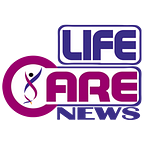the Games’ legacy continues as sports activities flourish
21 Jul 2023 — Two years ago, in the midst of the COVID-19 pandemic, the Olympic Games and Paralympic Games Tokyo 2020 brought the world together through sport, in a joint celebration of hope, solidarity and peace. Today, the host country is continuing to build on the legacy created by the Games, promoting sport and offering its residents more opportunities for healthier and more active lifestyles.
Hosting the Games boosted a series of actions to increase the physical activity of Tokyo residents. In 2022, 66 per cent of Tokyo inhabitants practised sport at least once a week, compared with 54 per cent in 2012, with a peak of participation (69 per cent) observed in 2021, according to the Tokyo Metropolitan Government (TMG). An increasing number of people practise sport for health reasons and to develop physical strength (75.3 per cent, up from 73.8 per cent in 2021).
A boost for urban sports
Urban sports enjoyed a spectacular Olympic debut at the Games, with skateboarding, BMX freestyle, sport climbing and 3x3 basketball all introduced for the very first time at the Olympic Games. Japanese athletes performed particularly well, further boosting the popularity of these sports in the country. Building on this momentum, more opportunities have been created for people across the country to continue engaging in these sports.
In 2022, the Tokyo 2020 skateboarding venue, Ariake Urban Sport Park, hosted the inaugural FIG Parkour World Championships, together with the Urban Sport Festival Tokyo 2022. The festival included sport demonstrations and initiations with elite athletes in urban sports, such as parkour, BMX flatland and breaking. The venue is now being expanded into a large urban sports complex, due to open in October 2024, with the plan to add a new sport climbing facility and a 3x3 basketball court.
The Olympic legacy continues to evolve beyond the host city of Tokyo. According to the Japan Sport Council (JSC), many cities across Japan benefitted from hosting pre-Games training camps, while others have used the momentum created by the Games as an opportunity to enhance existing sports hubs.
With the slogan “Utsunomiya ‒ City of 3x3”, Utsunomiya City, located north of Greater Tokyo, is engaging the local community in 3x3 basketball, while promoting the local food and culture. The city is organising athlete visits to local schools, and equipping them with basketball courts and balls. In 2022, it was the first Japanese city to host the opening round of the FIBA 3x3 World Tour, the FIBA 3x3 World Tour Utsunomiya, and it will continue to host the FIBA 3x3 World Tour Opener until the 2024 season.
Famous for its natural surroundings, with high mountains beloved by hikers, Morioka in Iwate Prefecture hosted rock-climbing training camps before the Tokyo 2020 Games. With the momentum created by the Games, the prefecture went on to host the IFSC Climbing World Cup B&L Combined in 2022, and continues to support both elite and younger athletes.
Tokyo 2020 venues enjoyed by the public
In line with Olympic Agenda 2020, which seeks to minimise construction and thus reduce the carbon emissions of the Games, only eight new competition venues were built for Tokyo 2020. All of them have now been reopened for public use, with the Olympic Village set to reopen in 2024.
Located close to central Tokyo, the Sea Forest Waterway, which hosted the Tokyo 2020 rowing and canoeing competitions, was reopened by the Tokyo Metropolitan Government (TMG) in April 2022. It is now bustling with competitions in a variety of sports, including rowing, canoeing and triathlon. It has become a dynamic hotspot within Tokyo Bay, with music festivals and events enjoyed by the public.
After the reopening of the Sea Forest Waterway, the Tokyo Aquatics Centre reopened its doors. Host of the Tokyo 2020 swimming, diving and artistic swimming events, it is now open for water polo as well.
The Olympic Village is currently being transformed into Japan’s first “hydrogen-powered city”, in line with Tokyo 2020’s objective to showcase sustainable solutions, and TMG’s “Zero Emission Tokyo” strategy. Expected to open in 2024, this urban space is designed to enable interaction among generations and communities. It will offer a range of entertainment, business, childcare and healthcare options in an eco-friendly environment, providing bicycle rentals, car-sharing services and electric vehicle charging stations.
Keeping Olympic memories alive
To preserve the memories and the legacy of the Games, TMG has put in place a framework for safeguarding Olympic memorabilia, cultural heritage and archives. Symbolic locations have been given names related to the Games; Olympic items, such as the cardboard beds used by Tokyo 2020 athletes, are being displayed at exhibitions; and TMG staff are working to ensure the proper archiving of Olympic records. Locations across the country — such as sports centres and libraries — now display iconic items linked to the Games, including mascots, Tokyo 2020 Olympic and Paralympic torches, uniforms and competition equipment.
The Tokyo 2020 Games also helped to create a volunteering culture in Japan. According to a September 2021 survey, 96.4 per cent of the city volunteers recruited by TMG hoped to continue volunteering activities after the Games. A Tokyo Volunteer Legacy Network was launched, providing them with further volunteering opportunities in the area.
To find out more about the Tokyo 2020 legacy and to access the Tokyo 2020 legacy case studies, click here.
